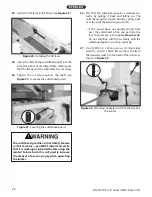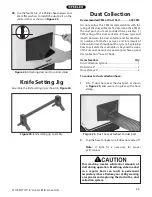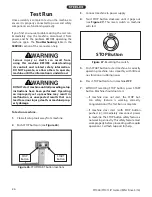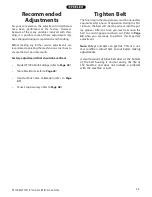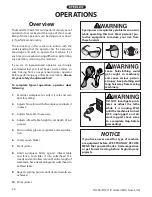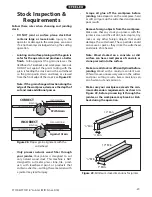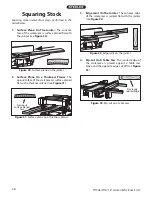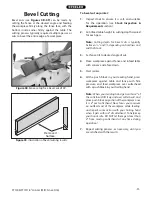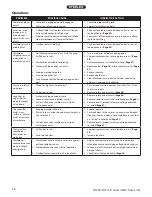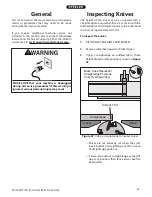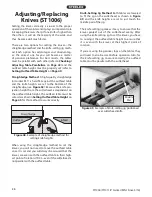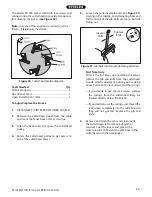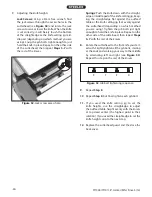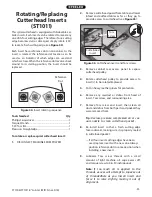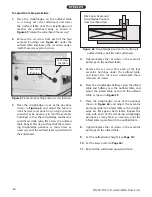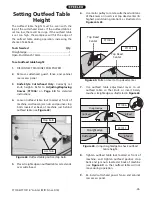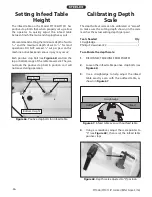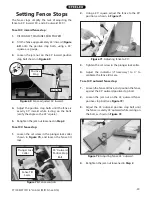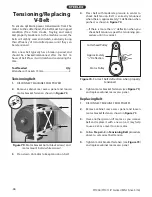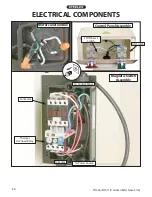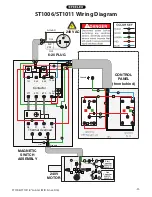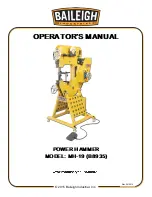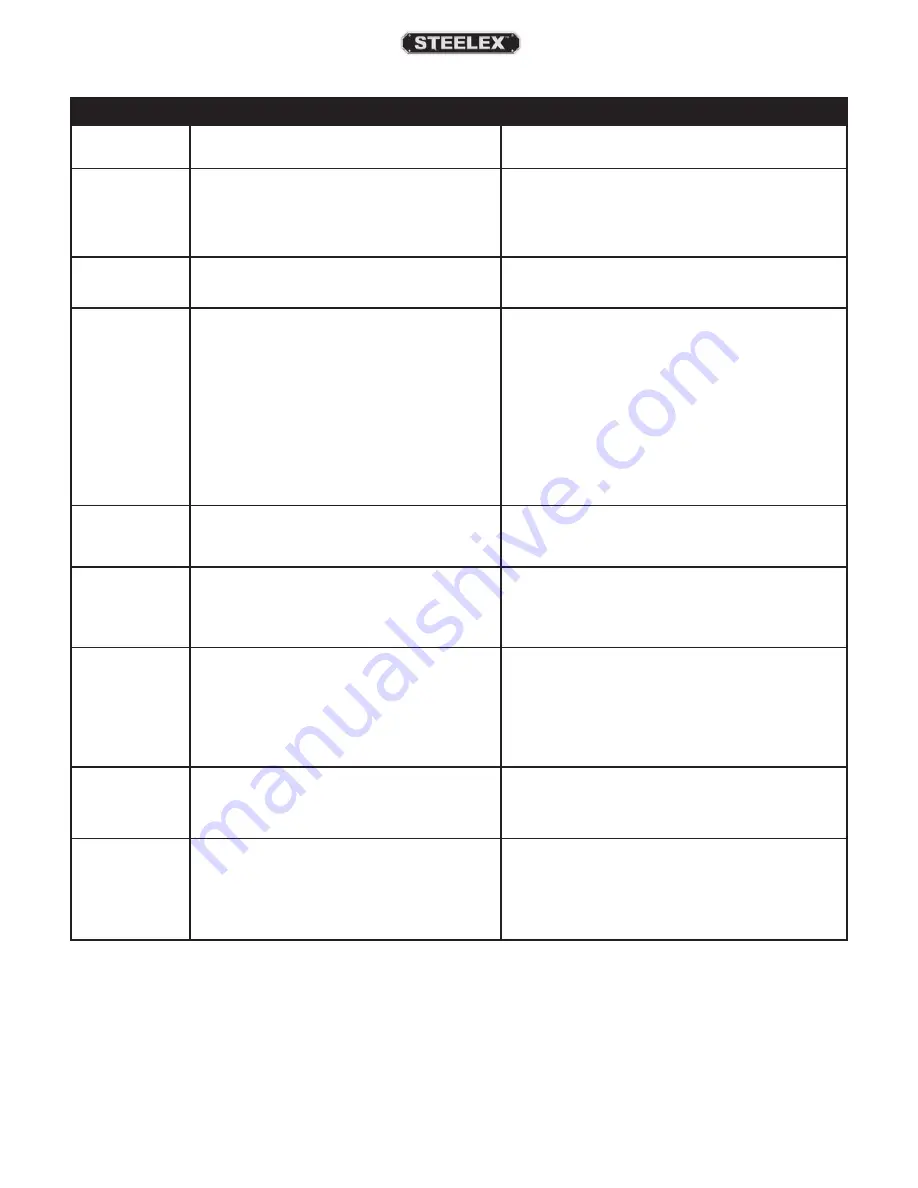
-36-
ST1006/ST1011 8" Jointer (Mfd. Since 3/16)
PROBLEM
POSSIBLE CAUSE
CORRECTIVE ACTION
Tables are hard to
adjust.
1. Table lock is engaged/partially engaged.
2. Table stops blocking movement.
1. Completely loosen table locks.
2. Loosen/reset table stop bolts.
Excessive snipe
(gouge in end
of board that is
uneven with rest
of cut).
1. Outfeed table is set too low, or knives (straight
knife cutterheads only) set too high.
2. Operator pushing down on trailing end (infeed
side) of workpiece as it leaves cutterhead.
1. Align outfeed table with cutterhead knives/inserts at
top dead center (Page 45).
2. Focus most of the workpiece pressure against outfeed
table while cutting.
Workpiece stops in
middle of cut.
1. Outfeed table set too high.
1. Align outfeed table with cutterhead knives/inserts at
top dead center (Page 45).
Workpiece
chipping, tear-out,
indentations, or
overall rough cuts.
1. Not feeding workpiece to cut "with the grain."
2. Dull knives/inserts.
3. Workpiece not suitable for jointing.
4. Nicked or chipped knives or inserts.
5. Feeding workpiece too fast.
6. Excessive depth of cut.
7. Lack of proper dust collection or clogged dust
port.
1. Turn workpiece 180° before feeding again.
2. Sharpen/replace knives; rotate/replace insert(s) (Page
38).
3. Ensure workpiece is suitable for jointing (Page 27).
4. Replace knives (Page 38); rotate/replace insert(s) (Page
41).
5. Reduce feed rate.
6. Reduce depth of cut.
7. Clear blockages, ensure dust collection is operating
efficiently; upgrade dust collector.
Fuzzy grain left in
workpiece.
1. Wood has high moisture content.
2. Dull knives/inserts.
1. Ensure wood moisture content is less than 20%. Allow
to dry if necessary.
2. Replace/rotate knives/inserts (Page 38).
Long lines or
ridges that run
along the length
of the board.
1. Nicked or chipped knives/inserts.
2. Loose or incorrectly installed insert(s).
3. Dirt or debris under carbide inserts (spiral
cutterheads only).
1. Replace/rotate knives/inserts (Page 38).
2. Remove/replace insert(s) and install properly (Page 41).
3. Remove inserts, properly clean mounting pocket and
re-install (Page 41).
Uneven cutter
marks, wavy
surface, or chatter
marks across face
of workpiece.
1. Feeding workpiece too fast.
2. Knives/inserts not positioned at even heights in
the cutterhead.
3. Dirt or debris under carbide inserts (spiral
cutterheads only).
1. Reduce feed rate.
2. Position knives so they are set up evenly in cutterhead
(Page 38). Remove, clean, and re-install any inserts that
are "raised" in cutterhead (Page 41).
3. Remove inserts, properly clean mounting pocket and
re-install (Page 41).
Glossy surface;
scorching or
burn marks on
workpiece.
1. Dull knives/inserts.
2. Feed rate too slow.
1. Sharpen/replace knives; rotate/replace insert(s) (Page
38).
2. Increase feed rate.
Workpiece is
concave or convex
along its length
after jointing.
1. Workpiece not held with even pressure against
outfeed table during cut.
2. Workpiece too uneven at start of operation.
3. Outfeed table not parallel with infeed table.
1. Apply even downward pressure against workpiece
throughout entire travel along outfeed side during cut.
2. Take partial cuts to remove extreme high spots before
doing a full pass.
3. Check/adjust table parallelism (Page 42).
Operations

